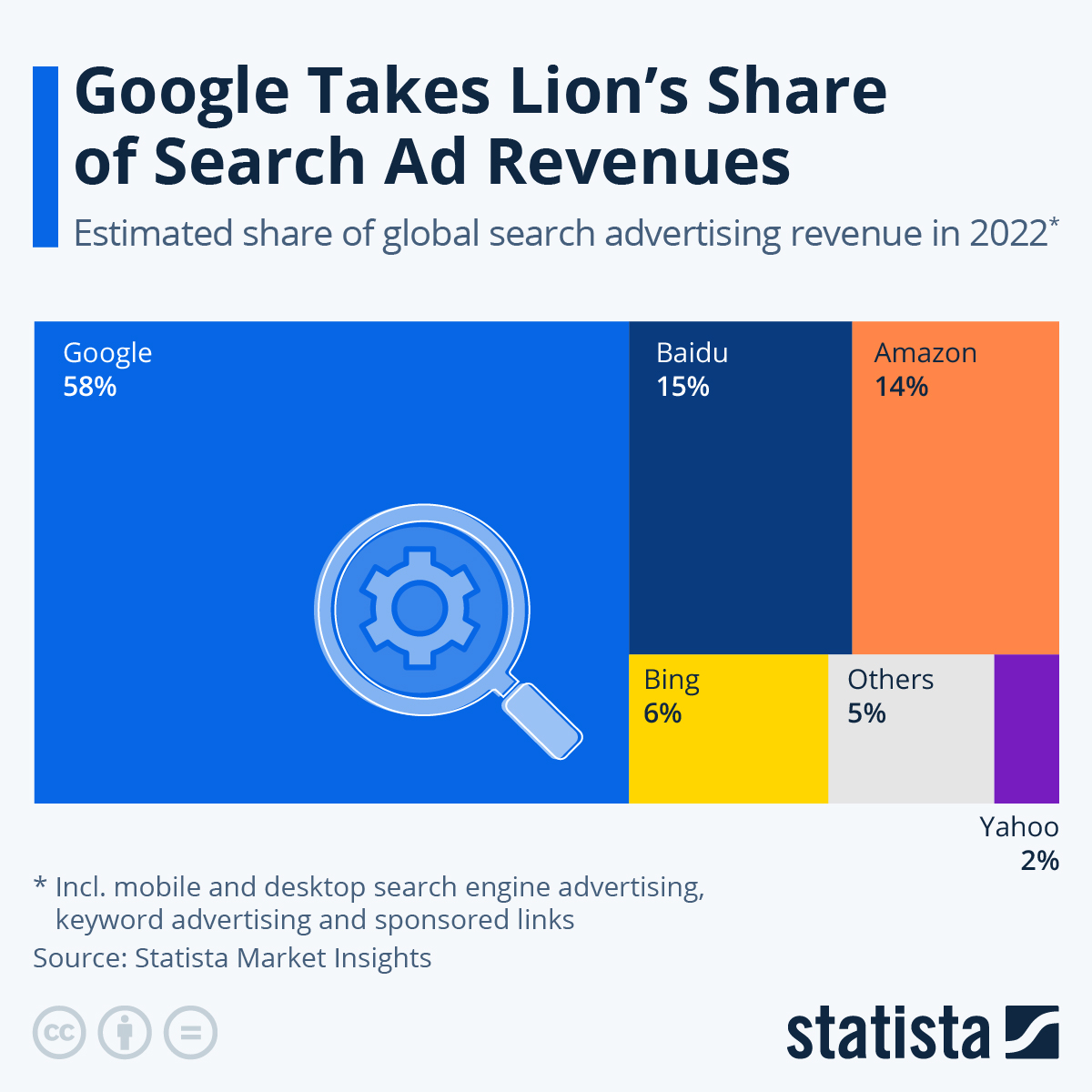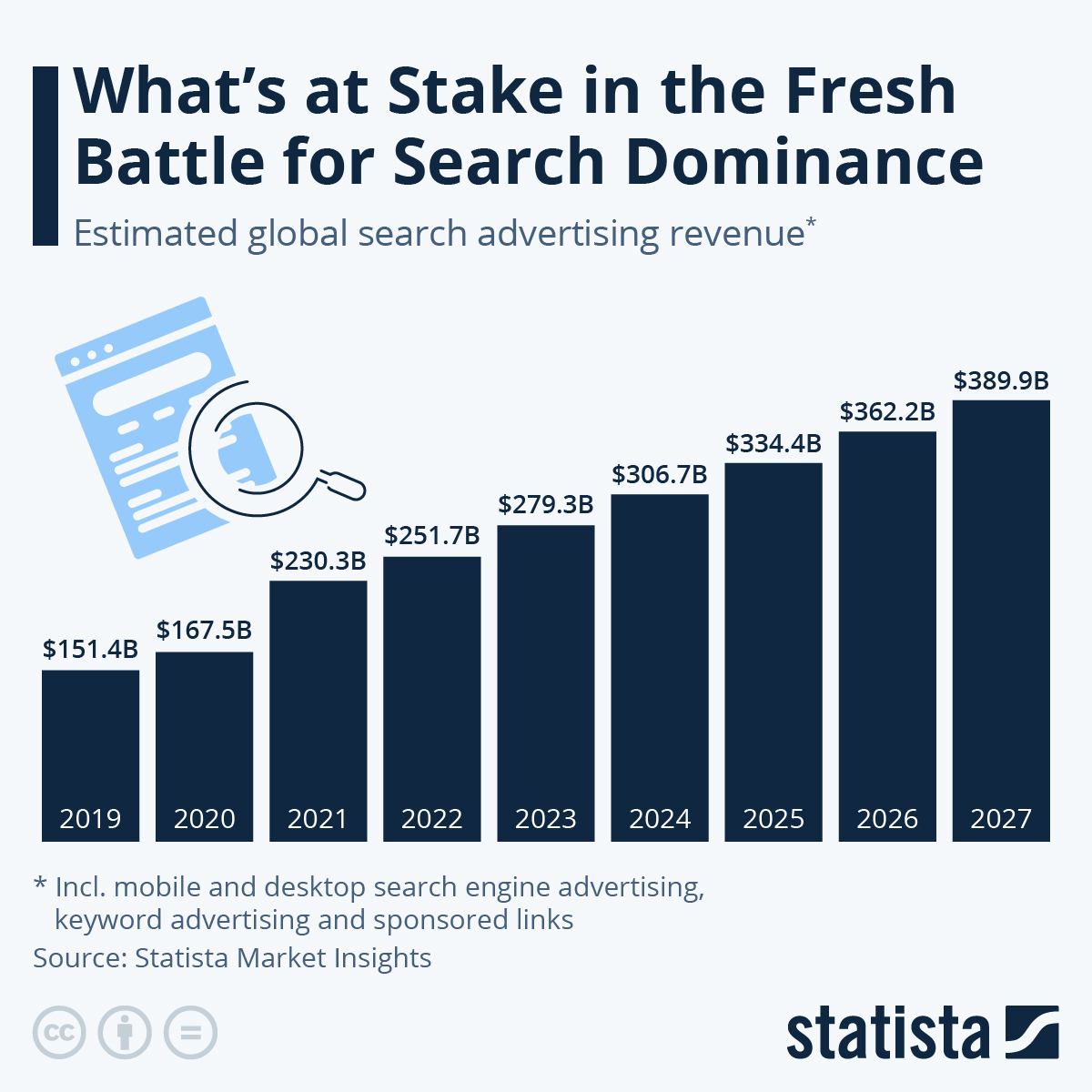Source: Statista
2023 has been eventful, to say the least, and a look at the biggest trending Google searches this year can serve as a reminder for some of the events and situations that have shaped our world over the last 12 months.
At the top of the trending news-related searches was the war in Israel and Gaza. The second fastest growing news search term was “Titanic submarine”, referring to the implosion in which the five people on board the OceanGate submarine, on trip to the wreckage of the Titanic, died. The third most-popular term was “Turkey earthquake” – the natural disaster which struck Turkey and Syria in February, claiming almost than 60,000 lives.
In less earnest events, the world of entertainment provided plenty reason to turn to Google. For many, 2023 was the year of Barbie. The movie was a hit at the box office and also displayed the highest growth in search volume for the year, followed by its opening weekend rival, Oppenheimer. In terms of music, “Shakira” was the term trending the most.
One person, Damar Hamlin, made it to the top of two categories – people and athletes – after the NFL player suffered a cardiac arrest while participating in a January 2 game for Buffalo Bills. He went on to make a full recovery. Sadly, not all of the world’s well-known and popular people made it to the end of 2023. The most high profile passing, at least in terms of Google Search queries, was that of actor Matthew Perry.



